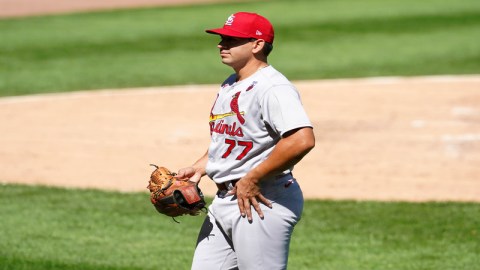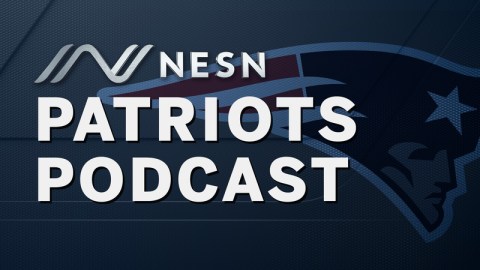Back in Week 3, the Patriots faced the Bills in an AFC East matchup. Both teams were 2-0 and looking to continue their perfect start to the season. The Patriots blew an early 21-0 lead and the Bills came away with the victory.
It would be wrong to suggest the Patriots lost the game unfairly, as Tom Brady did throw four interceptions and the New England defense didn't play well, but a questionable pass interference call greatly changed the game.
The Bills started a drive with 11:27 left in the fourth quarter down seven points and needing a touchdown. After a 48-yard gain by Donald Jones put Buffalo at the New England 32 yard line, quarterback Ryan Fitzpatrick went for the end zone on first down. David Nelson was the intended reciever, but he was deep in the back of the end zone and ran into a Patriots' defensive player. The ball was underthrown and intercepted by Josh Barrett in the end zone.
It was a big play for New England as they got the ball back and would be able to try and increase their lead. Instead, a late flag was thrown by an official for pass interference, negating the play and putting the ball on the goal line for the Bills.
Buffalo wasted no time capitalizing on their opportunity, as running back Fred Jackson ran the ball into the end zone on the next play, tying up the game.
In this particular situation, the game was impacted signifigantly by a play that wasn't even close. The Bills gained 30 yards and all they had to do was toss a ball towards the end zone. Fitzpatrick, a graduate of Harvard, is smart enough to know that his chances of getting a pass interference call are high enough to justify the throw, even with no one open.
The NFL is a full contact sport. Each week, players leave it all on the line, sacrificing their bodies for the sake of their team in hopes of a victory. But in a game where most plays end in a tackle, it doesn't seem fair for a penalty to be called just for touching an opposing player.
Receivers need to be allowed the opportunity to catch the ball when it is thrown their way, but because the rule is so open ended, defensive players end up getting penalized for inadvertently touching the receiver past the "five-yard buffer zone."
To have the penalty as a spot of the foul infraction gives it much more of an impact when it is called. Officials should only be calling it when they have to, when the defensive player doesn't give the receiver a chance of catching a catchable ball before it gets to him. There should be much more leinancy given to defensive players, whose job is to defend.
With defenders confused about when the penalty will be called and quarterbacks taking advantage of the spot of foul verbage within the rules, the NFL needs to let their players battle it out on the field and stop throwing pass interference flags so quickly.
Photo via Flikr/chrischase



